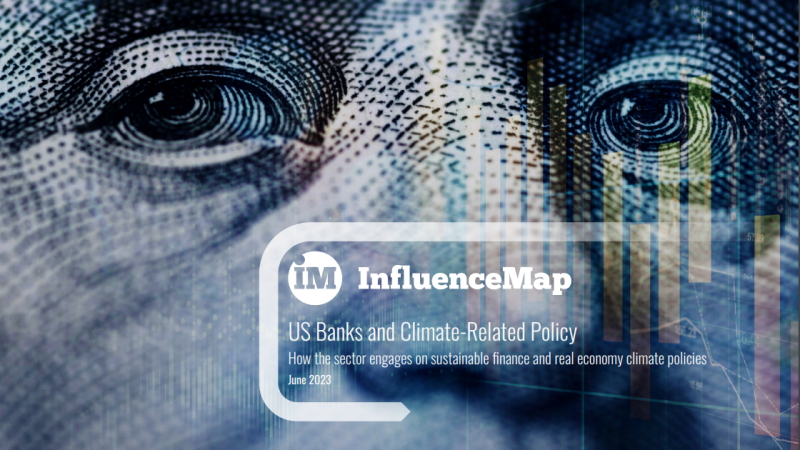US banks and climate-related policy: How the sector engages on sustainable finance and real economy climate policies

New research shows that despite their high-level support for action on climate change, the largest US banks are not engaging in support for key US climate-related policy measures. At the same time, these banks retain membership to industry associations that are actively opposing key climate policies and regulations, both for the real economy and the financial system.
The analysis looks at 15 of the largest US banks along with five industry associations that represent them on financial policy. Banks were assessed on their engagement with real economy policies of government bodies mandated to implement the Paris Agreement as well as engagement with climate or sustainability-related financial regulation.
Following the release of the Biden Administration’s Executive Order on Climate-Related Financial Risk, the US Financial Stability Oversight Council (FSOC), a collaborative body made up of financial regulators and charged with monitoring the stability of the financial system, identified climate change as an “emerging and increasing threat to U.S. financial stability.” Financial regulators have begun to address this risk by starting to integrate climate into their regulatory and supervisory approaches.
While large US banks recognize the risk that climate change poses to the financial system, their industry associations have been unsupportive of financial regulators' efforts to address climate-related financial risk, pushing back on emerging climate risk regulations. These same associations have also engaged in opposition to climate disclosure policies at the state, national, and international level.
Additionally, despite the fact that several banks assessed have been the target of "anti-ESG" efforts in the US, their financial industry associations have not been actively engaged in opposition to these policies.
The sector stresses the need for real economy climate change policies, but has not utilized its significant policy influence resources to advocate for specific climate policies. Additionally, nine of the 15 banks assessed are members of the US Chamber of Commerce, which has been actively obstructing climate policy in the US at the federal and state level.
This research raises questions about how willing the US banking sector is to seriously act on climate commitments and pledges developed since the Glasgow climate summit of 2021 and articulated by GFANZ, including GFANZ's call for governments to "act with urgency" and advance "ambitious policy proposals" to accelerate the transition to net zero.
See the full report on InfluenceMap's website here.
